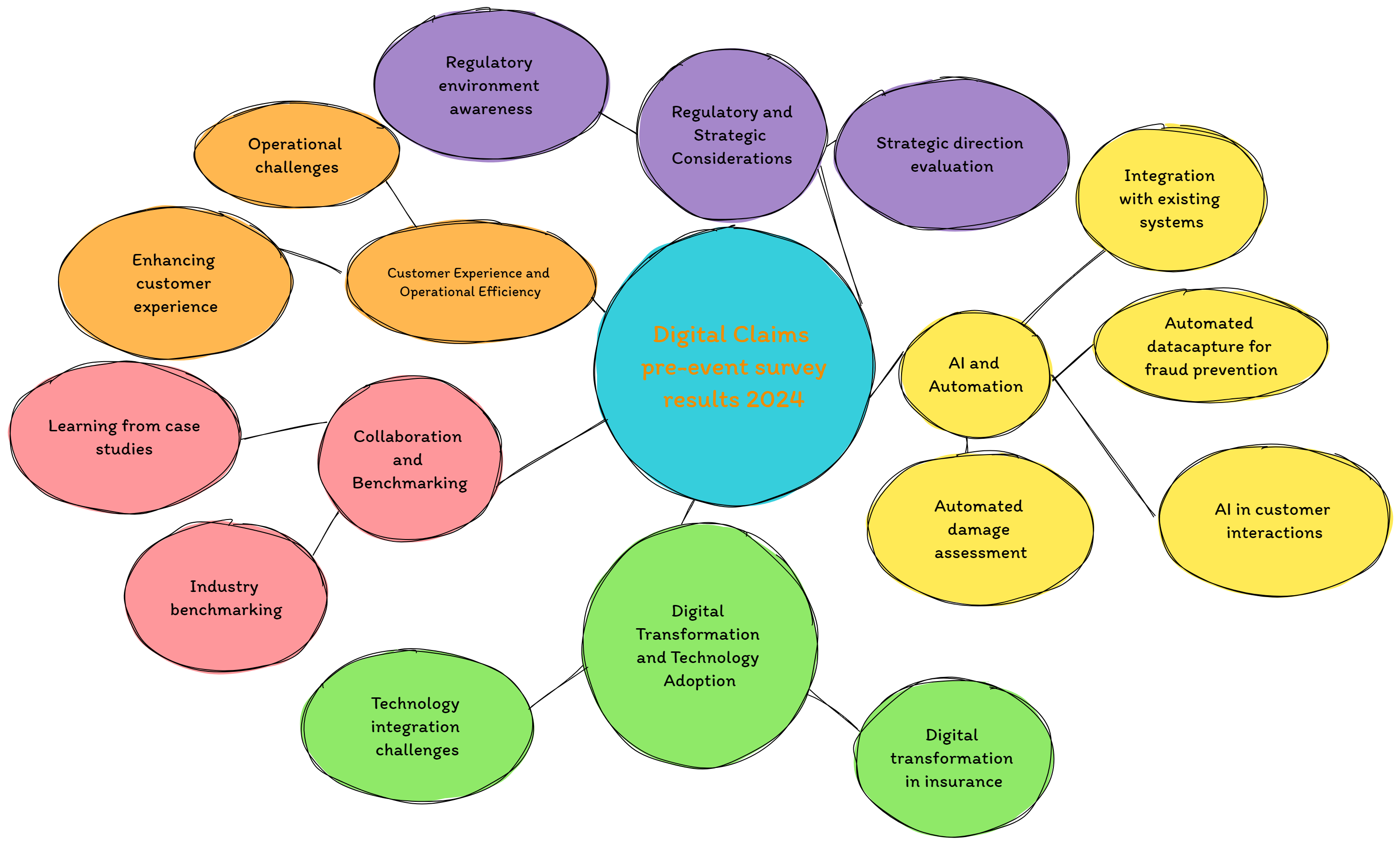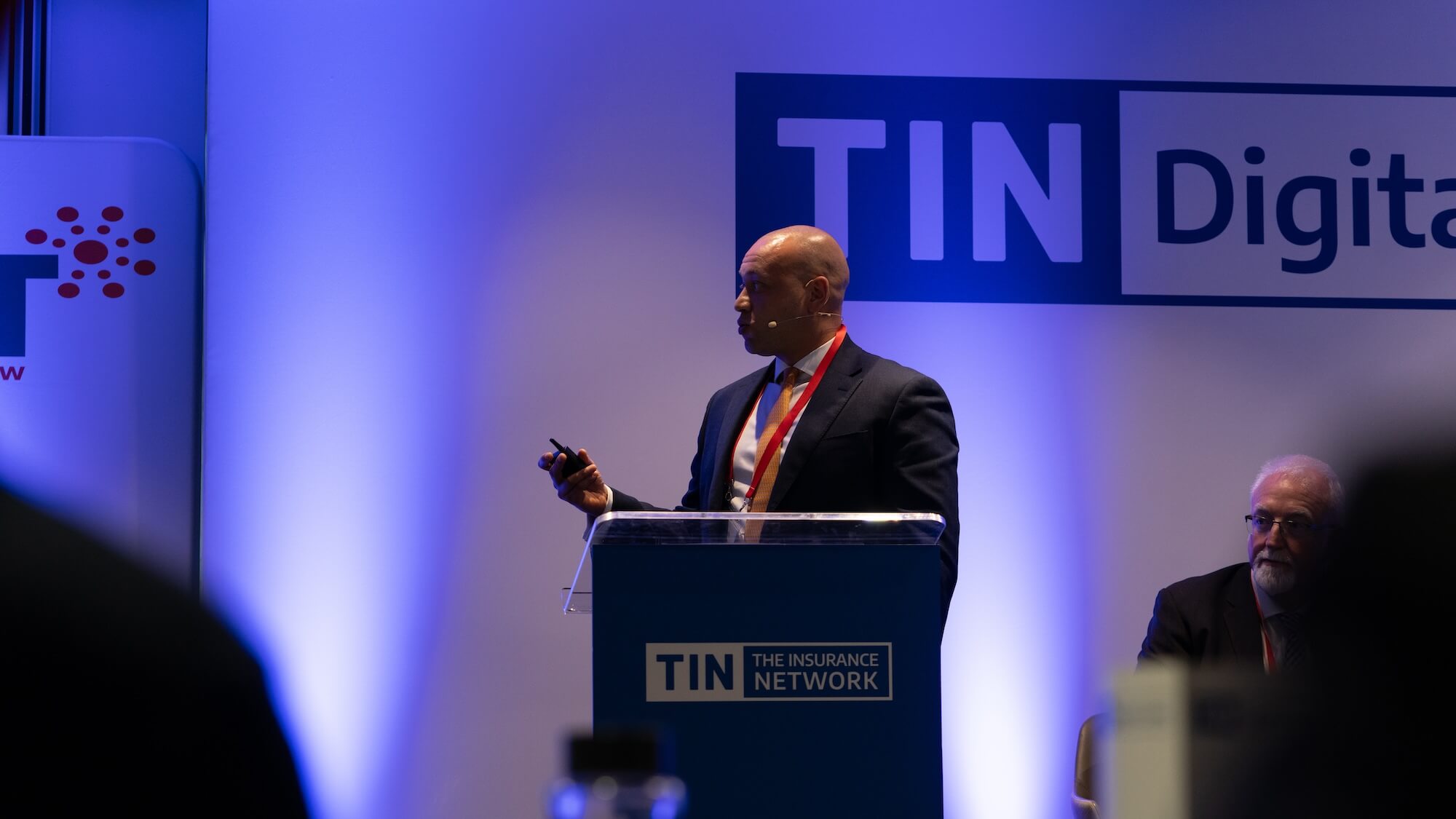The pre-event survey data reveals several key themes and concerns within the industry, especially regarding the integration of technology in claims processing and management. Here’s a breakdown of the main points and their implications.

Themes Identified
1. AI and automation:
There's a strong focus on the use of artificial intelligence (AI) and automation to enhance efficiency and accuracy in claims processing. Topics like automated damage assessments, AI in customer interactions, and automated data capture for fraud prevention are highlighted.
There are concerns about integrating AI with existing systems and ensuring it provides a clear benefit-cost ratio are notable.
2. Digital transformation and technology adoption:
Many responses focus on digital transformation journeys, particularly in motor and home insurance. There's also a need for solutions that handle complex claims processes and allow for diverse reporting methods.
The challenge of integrating new technology with legacy systems is a recurring theme, with a focus on cost-benefit analysis and the feasibility of technology adoption.
3. Customer experience and operational efficiency:
Enhancing the customer experience through technology while maintaining a human touch in digital interactions is a priority. This includes faster First Notice of Loss (FNOL) processes, empathetic AI communications, and omni-channel strategies.
Operational challenges such as claims handlers' work-life balance and talent retention post-COVID are also significant concerns.
4. Regulatory and strategic considerations:
There's an awareness of the changing regulatory environment, especially the impact of consumer duty requirements on automation and AI deployment.
Discussions about developing an effective strategic direction involve evaluating the current use of AI and technology across the sector and understanding its long-term implications.
5. Collaboration and benchmarking:
Respondents are interested in learning from case studies, best practices, and the experiences of others in the industry. There's a desire to benchmark against current and upcoming best-of-breed solutions.

Discussion points and implications include:
Strategic planning: Insights gained from peer led discussions at the event could guide strategic planning by emphasising areas where technological investment is critical and where there might be resistance or challenges.
Technology investment: There's a clear indication that the industry sees the potential in AI and digital solutions, but also a cautious approach to integration and cost management.
Customer-centric approaches: The repeated mention of customer experience suggests that any technological adoption should enhance, not hinder, customer interactions.
Regulatory compliance: With the significant focus on regulations like consumer duty, companies must consider compliance as a critical component of their technological solutions.
Outcomes and further discussion during and post event:
Developing clear ROI models: Since cost concerns are significant, developing clear ROI models for technology investments could help in decision-making.
Focus on customer experience: Innovations should focus on enhancing the customer experience, ensuring that technology implementations are customer-centric.
Regular industry benchmarking: Stay updated with industry benchmarks and best practices to ensure competitive and effective strategies.
Strategic partnerships: Explore partnerships for technology development and implementation to spread costs and risks.
[advert-5]
Sign Up to TINsights
Where we share our latest blogs, industry reports and insights

